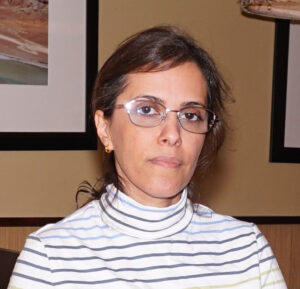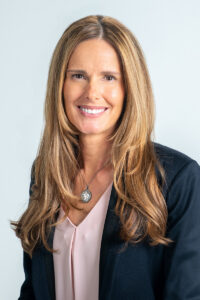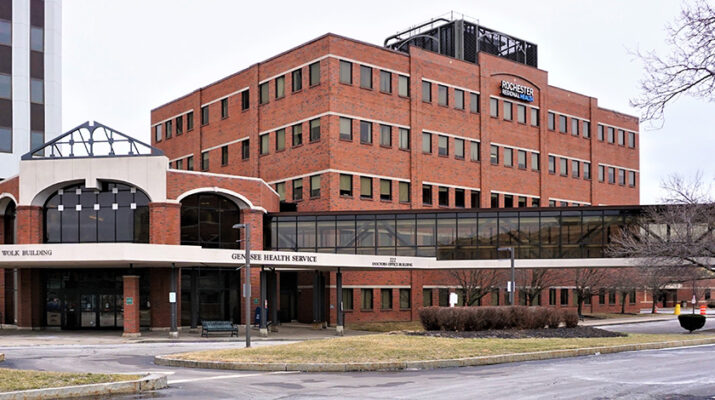Adults and families from about 60 countries turn to The Center for Refugee Health for treatment
By Mike Costanza

Zahraa Alnuaimi remembers how she felt in 2015, when she came to Rochester to escape the dangers of life in Baghdad.
“It was a huge difference being…away from family, away from everybody, starting again,” said the 43-year-old Iraqi.
Alnuaimi has gone on to make a new life for herself and her two children in Rochester. The Center for Refugee Health, a part of Rochester Regional Health, has helped her make that journey.
“Its general mission is to meet the needs of refugees locally, to introduce them to health care, to establish them with a primary care practice [and] to provide them with a lot of the social determinants of health they need to be successful,” said Tonya Erdle, a family nurse practitioner who has been with the center since 2018 and counts Alnuaimi as a patient.
Alnuaimi is just one of the approximately 5,000 refugees who currently turn to The Center for Refugee Health for medical care, case management services, help with mental health issues and other assistance. Though 40% of the center’s current patients are from the South Asian countries Bhutan and Nepal, the organization also serves those from the Democratic Republic of the Congo, Somalia, Iraq, Syria, Afghanistan, Cuba, Ukraine and many other parts of the world. All have made their way to the center through local refugee resettlement programs, such as the one run by the Catholic Family Center.
During their first two visits to The Center for Refugee Health, new patients are given any immunizations they need and screened for identifiable medical conditions.

“We go from those two visits identifying anything that we have to, whether it’s like a metabolic disease process or anemia or a vitamin deficiency, post-traumatic stress, all kinds of different abuse,” Erdle said.
Some of those diseases and conditions are endemic to their home countries.
“We get a lot of different GI [gastrointestinal] parasites and bacteria,” Erdle said. “A lot of it has to do with clean water availability.”
Many incoming patients have had little experience with modern medical systems.
“A lot of our patients aren’t familiar with a primary care system,” Erdle said. “They have little or no health literacy.”
Whether they are new or in treatment, patients may have needs that can’t be met by medical care.
“They struggle with everything,” Erdle said. “Complicated social issues and dynamics within their families, housing problems, other resource problems like clothing, food, all types of things.”
Finally, those the center serves may not speak English and sometimes have customs or social mores that could hinder their treatment. For example, men from Middle Eastern countries might not be comfortable being treated by or interacting with female medical personnel.
The Center for Refugee Health tackles those challenges by a variety of means. Some of its 20-or-so employees speak multiple languages, and offsite interpreters are available when a patient’s language is not among those spoken in-house.
In addition, Erdle and the center’s other staff educate themselves about their patients’ cultures and strive to develop the kinds of relationships with them that facilitate treatment.
“A lot of it’s really us just taking our time and getting to know the patients,” Erdle said. “Not just in the health context, but also their family context, their cultural context, their social context.”
Many of the center’s medical staff are board-certified in family medicine, and most treatment is given in-house.
“We tend to treat the whole family,” Erdle said. “My youngest patient this week was 2 days old. My oldest was 91.”
When necessary, the center refers patients to outside specialists. Though the facility once had a therapist who treated mental health issues, it now refers patients to offsite mental health treatment providers. Two social workers stand ready to arrange such services and help patients obtain the housing, food and other resources they need.
Alnuaimi was living in Baghdad when conditions forced her, her husband, their two children and her brother, Karam, to leave Iraq. She had once worked for the US embassy, her brother was an American-trained pilot who had worked for the Iraqi army and all in her family are Sunni Muslims. After US forces withdrew in 2011, both ISIS and the Shiite-dominated government began watching the family and they came to fear for their lives. They managed to escape to Jordan in 2014.
Karam was denied permission to emigrate to the US and has since died. Alnuaimi, her husband and their children secured permission to come to America and arrived in Rochester in September of 2015.
“We came over here with no money, nothing at all, only ourselves and our clothes,” Alnuaimi said.
One month after she and her family arrived, they became patients of The Center for Refugee Health. Alnuaimi soon came to feel secure with its staff.
“I wasn’t feeling I’m alone anymore,” she said. “They were listening, they were helping.”
In addition to seeking medical care for herself and her family, Alnuaimi turned to the center’s therapist for mental health treatment and support when her husband became abusive.
“She used to make a lot of time for me,” Alnuaimi said. “Sometimes when I feel I need to run away from home, I had issues with my ex, I would go there even without an appointment.”
Alnuaimi eventually divorced her husband and now lives in Rochester with her boyfriend and her two children.
“I’m doing very well. I’m working full-time job. I have my own house. I have my own car. My kids are having fun,” she said. “We’re having amazing life.”
For more information go to: www.rochesterregional.org/Locations/Alexander-Park/The-Center-for-Refugee-Health

